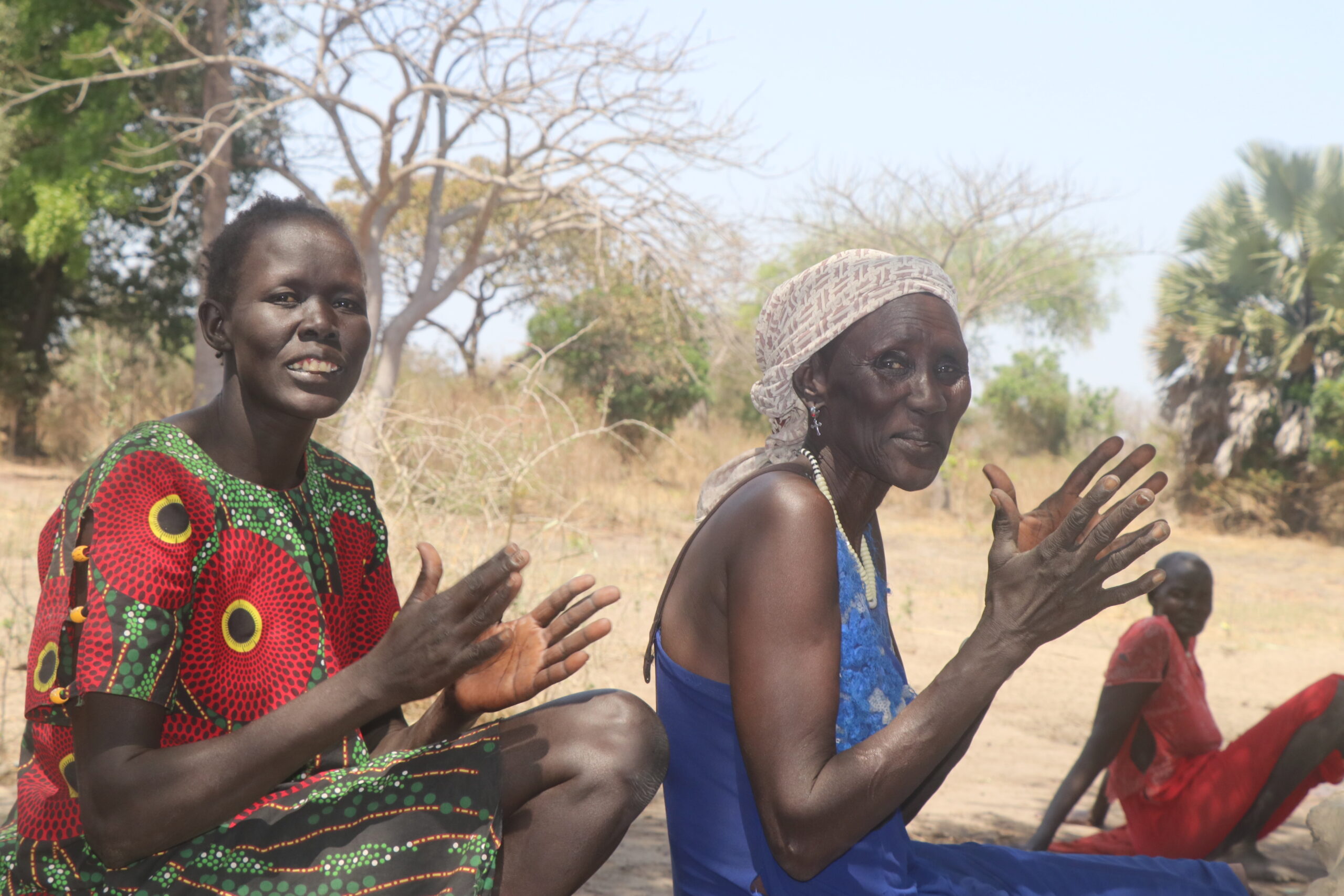
MAJIS, South Sudan.
Back in 2014, IJI funded the Multi-educational and Agricultural Jesuit Institute of South Sudan (MAJIS). In partnership with the Jesuits of East Africa, IJI sought to address food insecurity to an entire county, roughly 288 villages. The project focuses on women and knowledge transfer for sustainable farming, good agricultural practice & appropriate land use. Before the project in 2014, we spoke to women like Mary Ding, a mother of 6 children, who faced food shortages and relied solely on farming for survival. Since the programme started in Rumbek, hundreds of people, most of them women, have been trained in agriculture and farming and graduates have the skills that not only empower them by way of knowledge transfer but has strengthened livelihoods as women, like Mary, now produce surplus meaning their efforts in the field can both feed and support their families.
The MAJIS project has had a huge impact on the lives of local women but this Easter we focus on the needs of the local children who cannot receive schooling due to long and dangerous distances to nearby schools. In recent years, an informal primary school is being run by the Jesuits of the Eastern Africa Province but the farming centre cannot continue to facilitate the needs of both adult farmers and their children. Our campaign hopes to raise funds to build much needed classrooms near the MAJIS centre.
These are the voices of women from Akol-Jal in South Sudan who have benefitted from the MAJIS centre where they are learning sustainable farming. They talk about the positive impact the farming centre has brought them and the concern they have for their children’s futures.
Akujur Rualdit is married and has 6 children; the youngest is 1 year old while the oldest is 13. Like Mary, Akujur on their 10m-by-10m plots, grow a variety of crops including Sukuma wiki (Collard greens), Okra, Kudra (like kale), Amaranth (a type of grain) and Pumpkin leaves. The crops are used for both consumption and as a source of income.
“We used to only eat one meal, during the evening hours, but now we are able to eat two meals a day.” Akujur, 2022.
When asked how the income from her farming has helped her, Akujur points to bedsheets hanging on the sticks surrounding her plot and said she used her income to buy them. She also bought a mattress and a goat. Mary said the income she earned has helped her in many ways, she buys maize flour and is able to use it to seek treatment when anyone from her family falls sick.
Akujur has 3 children in the informal school while Mary said she has 1, the 8-year-old. The school was introduced when one of the Jesuit priests noticed the women farmers brought their children to the farm, but the children were left with nothing to do but play all day. He decided to gather all the children and assigned a local villager to teach them in an informal school setting for a basic allowance. Over time, more children wanted to join the classes. Both women said they were happy when the priest started the school.
“For a long time, there has been no functioning school around here, our children had nowhere to go before the school was introduced. The nearest school was far from Akol Jal, so they could not walk the long distance. It was not safe.” Mary, 2022.
The MAJIS Field Officer – James Majang, mentioned one of challenges faced by children at the school is the inadequate number of classrooms. “Presently there are only 3 classrooms (Kindergarten, Primary 1 and Primary 2) which were originally intended for training women farmers, but these were repurposed to be used by the children … the villagers are still in need of more classrooms, because at the moment their children are unable to progress to Primary 3, onwards.”
This Easter our Lenten appeal returns to South Sudan where we hope to fundraise for the much-needed building of two classroom blocks to cater for 250 children within the next 3 years. Currently children must walk 12km to the nearest primary school, because this journey is too long and far too dangerous with risk of abuse and violence, children are without schooling and remain in the fields while their mothers work. Although such a simple campaign, the construction of the classrooms will have a huge impact and continue to empower and enrich the lives of the local communities, especially women, as the impact is twofold: firstly, local children are educated for a better future and secondly, women farmers are reassured that their children are safe and nearby.
You can help empower mothers and children today by donating to build classrooms that will change the lives of children now and in the future.
Author: Caroline Sanga, Programmes Officer South Sudan
Photo: Akujur Rualdit and Mary Ding are graduates of the MAJIS programmes where they learned sustainable farming/Fr. Wanyonyi Eric Simiyu SJ


